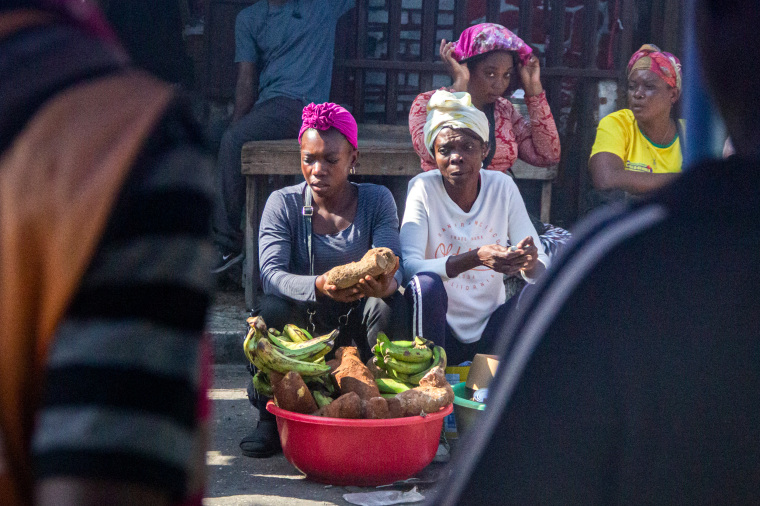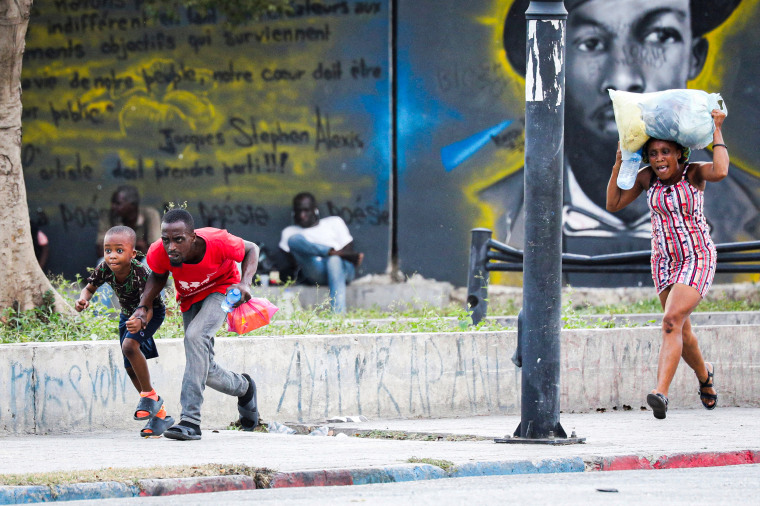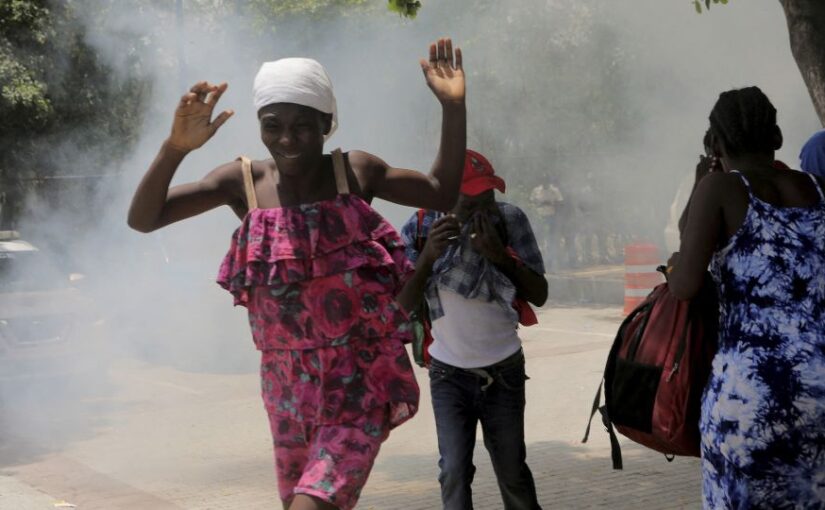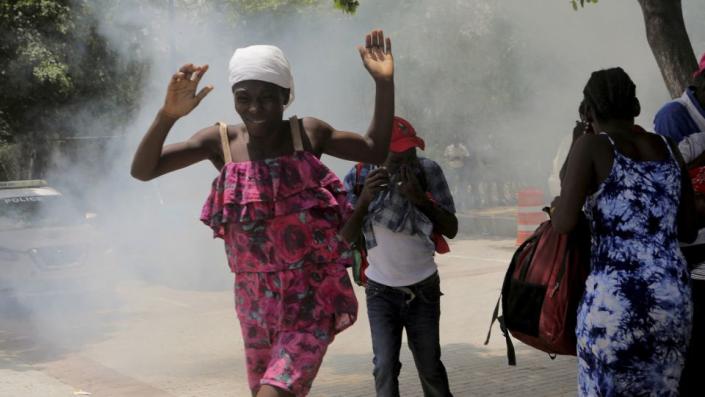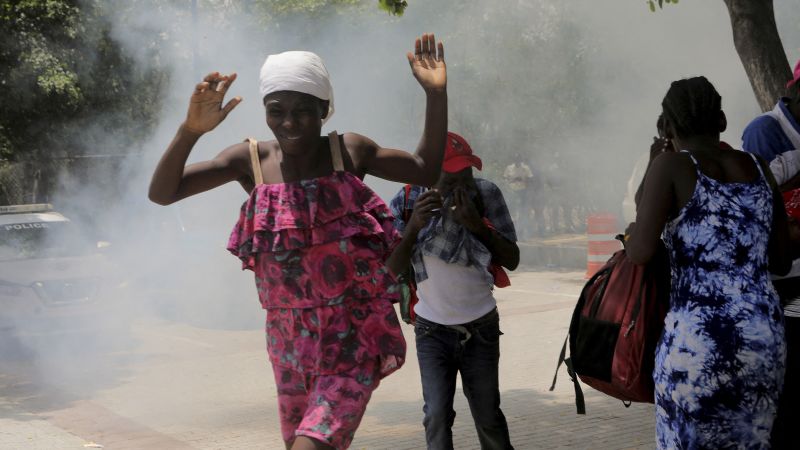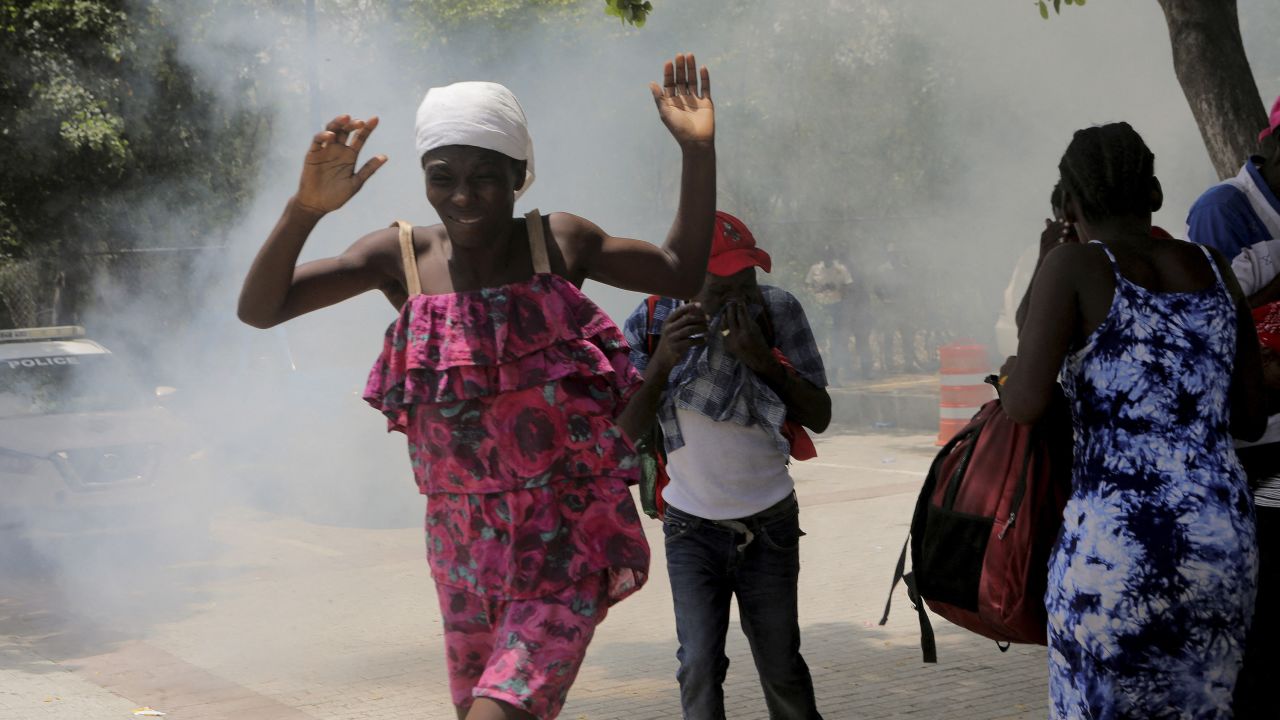The gang leader who has become the face of Haiti’s descent into lawlessness and violence has said he would consider calling a ceasefire only if his consortium of armed gangs was included in international talks on the country’s future.
Jimmy Chérizier, the former police officer better known via his nomme de guerre “Barbecue,” spoke to Stuart Ramsay, the chief correspondent for the U.K.’s Sky News, which like NBC News is owned by Comcast.
He warned that a foreign peacekeeping force would be treated as enemy fighters and meet armed resistance, and that a recent pause in violence was merely a technical halt.
“There is nothing calm, but when you’re fighting you have to know when to advance and when to retreat,” Chérizier said in the interview, which aired Friday.
“I think every day that passes we are coming up with a new strategy so we can advance, but there’s nothing calm. In the days that are coming things will get worse than they are now,” he said.
Chérizier leads the G9 collective of gangs but also leads Viv Ansanm, meaning “Living Together,” a revolutionary gang alliance.
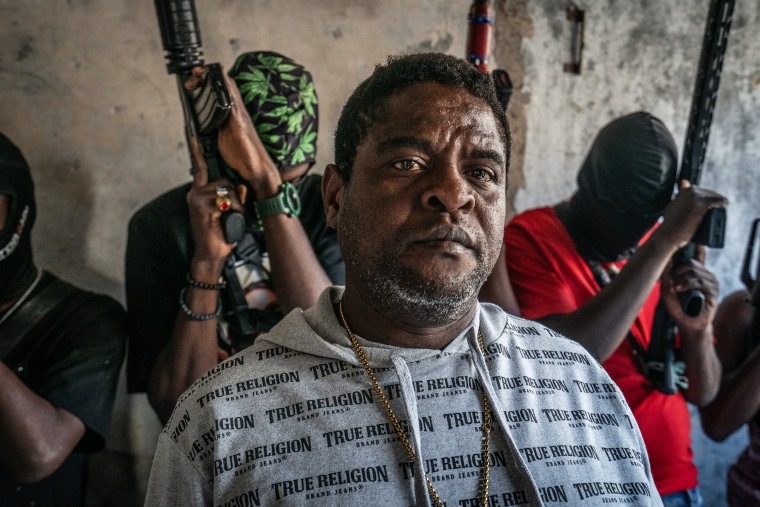
As much of 80% of the capital, Port-au-Prince, is now in the control of gangs after Prime Minister Ariel Henry announced he would stand down on March 12 following months of unrest. The United Nations said an estimated 1,500 people have been killed in gang violence this year so far, and 4,500 last year, in a report released Thursday.
At least 450 U.S. nationals have been evacuated from Haiti since March 17, with efforts ongoing to airlift the remaining Americans there, the State Department said in a briefing Thursday.
The pan-Caribbean CARICOM group of nations and the United States pledged to help form a transitional government leading to a democratic nation — but for now the gangs still rule the streets.
Chérizier was dismissive of this process, but said he respected CARICOM and left open the possibility of taking part in a peace deal.
“If the international community comes with a detailed plan where we can sit together and talk, but they do not impose on us what we should decide, I think that the weapons could be lowered,” he said.
“We don’t believe in killing people and massacring people, we believe in dialogue, we have weapons in our hand and it’s with the weapons that we must liberate this country,” Chérizier added.
The consortium of armed gangs Chérizier leads says that Haiti has been controlled by corrupt politicians, dating back at least to the devastating earthquake in 2010 that killed about 220,000 people and left 1.5 million homeless. Many in Haiti believe that international aid money for reconstruction was mishandled.
Seen by some as a revolutionary leader, Chreizier has been accused of brutal violence for years, including the killing of at least 71 civilians and torching of some 400 homes in Port-au-Prince in 2018. That was at the time Haiti’s worst massacre in a decade and led to him being branded a human rights abuser by the U.S. Treasury.
Sky News had to travel along a deserted freeway with abandoned, burnt-out vehicles to reach the man known as Barbecue, who was surrounded by armed guards and carrying two weapons himself.
“We were told that their snipers were watching us, and to drive slowly, and follow our guide’s every move,” Ramsay wrote in his report. He described this once busy route into the capital as “a barricaded battlefield.”
The area claimed by Chérizier’s group was relatively calm and stable — food and water distribution is taking place, with orderly lines of people, he said.
But Chérizier made it clear that any foreign peacekeeping force sent in would face armed resistance.
Kenya has pledged to send 1,000 troops to coordinate a U.N.-backed alliance, but the plan is now on hold. Chérizier said the Kenyans would commit atrocities and he would not allow it.
“It’s evolving. If the Kenyan military or Kenyan police come, whatever, I will consider them as aggressors, we will consider them as invaders, and we do not have to collaborate with any invaders that have come to walk over our independence,” he said.
Chérizier predicted there would be a Haiti “where there are no kidnappings, without raping and killing people,” but this would require “corrupt politicians and the corrupt oligarchs” leaving.
